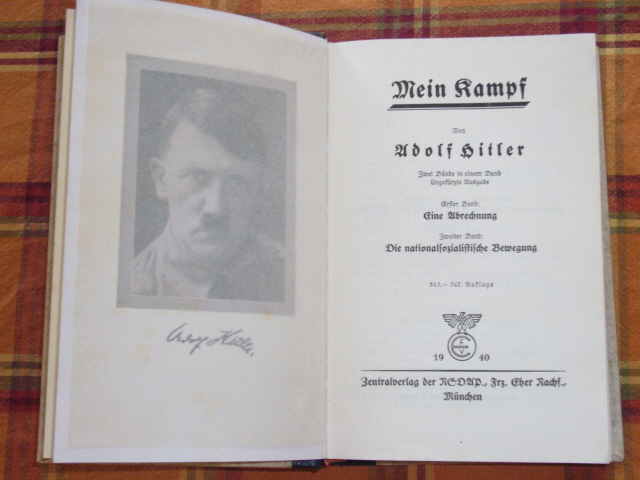

Mein Kampf presents a deeper problem, though, unrelated to such practical concerns as controlling extremism. Their efforts to control their legacy of extremism should be respected, even if their methods are not ours. Not so our European counterparts, who have experienced Nazism and other destructive social movements on their own soil. But let us not forget that in the United States we have been blessed with two centuries of secure borders and political stability. These measures may seem extreme to many Americans we cherish our First Amendments rights and find censorship anathema. In December 2000, a Czech court issued a $50,000 fine to the publisher of an illegal Czech-language edition. Many European countries restrict the sale of existing copies to qualified academics. The Bavarian Finance Ministry holds the continental European copyright to Mein Kampf, and routinely denies requests by authors to quote extended passages from it and by publishers to reprint it. This argument deserves serious consideration, and has been accepted by many European governments which regulate the production and dissemination of Nazi materials in a variety of ways. Better not to make it widely available, some say, to keep it out of the hands of those who would revive the movement its author started. For the scholars who study it, it is already available in libraries and in secondhand bookstores. Aware of this, many people would prefer that Mein Kampf not be reprinted.

The "bible of National Socialism" has found new generations of devotees in neo-Nazis, haters, racists, and Third Reich enthusiasts.

To some extent, Mein Kampf's contemporary ability to offend results from its continued unfortunate ability to inspire. Reprintings have become minor media events, eliciting protests and sometimes lawsuits. Some countries have banned it, and others have prohibited new translations. Mention it and a conversation can turn awkward say its name and tempers can rise. Its theories have long since been discredited, and its current influence seems limited to the furthest fringes of society, but it refuses to become just an outdated political text. It is reprinted here in its entirety with permission from the publisher.ĪLMOST SIXTY YEARS after the end of World War II, Mein Kampf has yet to become merely another historical document. Foxman was asked to write the introduction for the 1999 English translation published by the Mariner Books division of Houghton Mifflin Co.

Foxman, the National Director of the Anti-Defamation League and a Holocaust survivor. Editor's Note: The following is an introduction to Adolf Hitler's Mein Kampf written by Abraham H.


 0 kommentar(er)
0 kommentar(er)
